"Cherishing Little Steps - A Haven for Baby and Family Journeys"
Baby’s Social Skills
Did you know that your baby is born with the ability to connect with others and develop social skills? From the moment they enter this world, they are already showing signs of early social behaviors.
As a parent, you play a crucial role in nurturing and supporting their social development. Understanding the milestones in their social growth and knowing how to promote healthy interactions is key. Building strong bonds and attachments with your little one will lay the foundation for their future relationships.
In this guide, we will explore the fascinating world of your baby’s social skills and provide you with practical tips on how to foster their social development. Let’s embark on this journey together and create a loving and socially adept environment for your little one!
Key Takeaways
- Smiling and making eye contact are early social behaviors in babies.
- Parent-child interactions are crucial for a baby’s social development.
- Positive parent-child interactions and early experiences with peers contribute to stronger social skills later in life.
- Building strong social skills impacts a baby’s overall development.
Early Social Behaviors
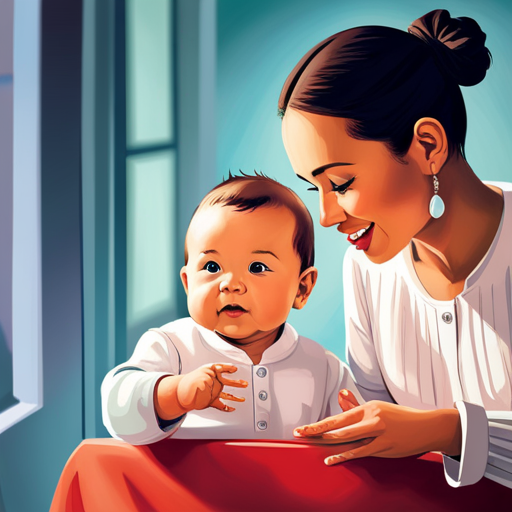
You will notice several early social behaviors in your baby, such as smiling and making eye contact. These behaviors are the building blocks of social interaction and play a crucial role in their development. From the moment they’re born, babies are wired to connect with their caregivers and the world around them.
Parent-child interactions are the foundation of a baby’s social development. When you respond to your baby’s needs and engage in positive interactions, you’re helping them develop trust and a sense of security. Through these interactions, your baby begins to learn about emotions, communication, and social cues.
As your baby grows, they also start to develop peer relationships. Even at a young age, babies can engage in social play with other infants. They may imitate each other’s actions, take turns, and show interest in one another. These early interactions provide opportunities for your baby to learn important social skills, such as sharing, cooperation, and empathy.
Research shows that babies who’ve positive parent-child interactions and early experiences with peers tend to develop stronger social skills later in life. So, take the time to engage with your baby, respond to their cues, and provide opportunities for social interactions. These early social behaviors lay the foundation for healthy relationships and social competence as your baby grows.
Milestones in Social Development
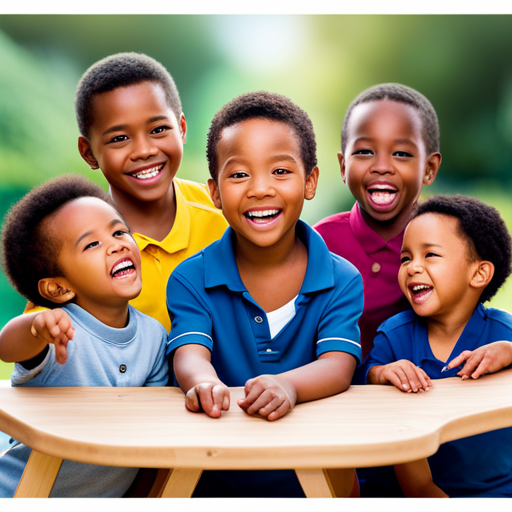
During the first year of your baby’s life, they’ll reach important milestones in their social development. These milestones are crucial for their future interactions with others and their ability to form meaningful relationships. Here are some key milestones to look out for:
-
Social cues: Around 3 to 4 months, your baby will begin to respond to social cues. They’ll start to smile and coo in response to your voice and facial expressions. This is an important step towards understanding and engaging in social interactions.
-
Eye contact: By 6 months, your baby will start making eye contact with you and others. This is a significant milestone as it shows their growing ability to connect and communicate with others.
-
Turn-taking: Around 8 to 9 months, your baby will begin to engage in turn-taking activities. They’ll take turns babbling, imitating sounds, and playing games like peek-a-boo. This is a sign that they’re developing social reciprocity skills.
-
Attachment: By the end of the first year, your baby will form a strong attachment to you and other caregivers. They’ll seek comfort and security from familiar faces and develop a sense of trust and emotional bonding.
-
Peer relationships: Towards the end of the first year, your baby may start showing interest in other babies and children. They’ll observe and imitate their actions, laying the foundation for future peer relationships.
Importance of Social Skills
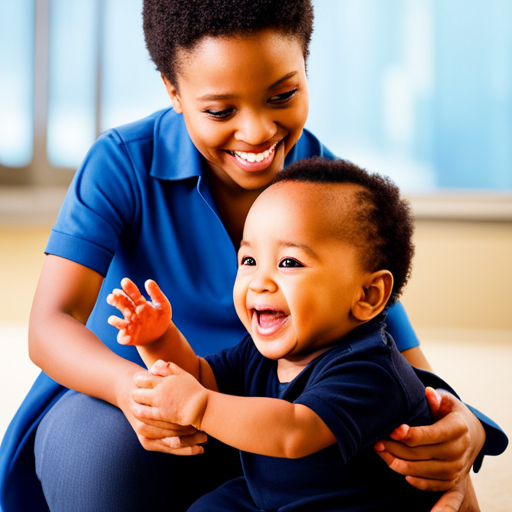
As your baby develops their social skills, it becomes evident that their ability to connect and communicate with others plays a crucial role in their overall development. Building strong social skills not only allows them to form meaningful relationships, but it also impacts their emotional well-being and future success in life.
Teaching empathy and fostering the ability to build friendships are two key aspects of developing social skills in babies.
Empathy is the ability to understand and share the feelings of others. By teaching empathy from an early age, you’re helping your baby develop a deep understanding and compassion for others. This skill allows them to build stronger connections and navigate social situations with kindness and understanding.
Building friendships is another vital aspect of social development. Friendships provide emotional support, companionship, and an opportunity for your baby to learn important social skills such as cooperation, sharing, and problem-solving. Encourage your baby to interact with other children and provide them with opportunities to engage in playdates or join social groups.
Types of Social Interactions
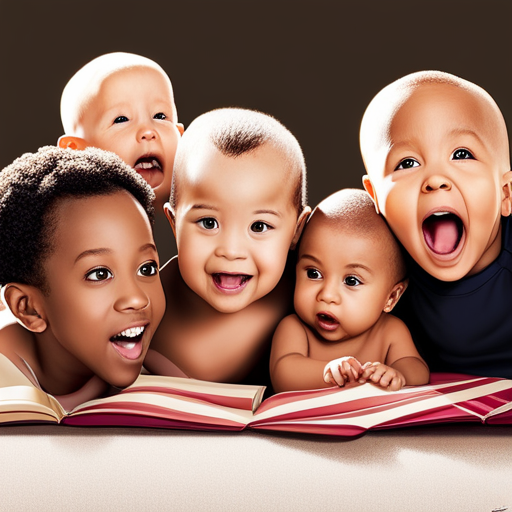
When your baby interacts with others, they engage in various types of social interactions. These interactions play a crucial role in their social and emotional development. Here are some of the types of social interactions your baby may engage in:
-
Peer Interactions: As your baby grows older, they’ll start to interact with other children their age. These interactions allow them to learn important social skills such as sharing, taking turns, and cooperating with others.
-
Nonverbal Communication: Before your baby can speak, they rely heavily on nonverbal communication to interact with others. They may use gestures, facial expressions, and body language to express their needs and emotions.
-
Imitative Interactions: Babies are natural imitators. They learn by watching and imitating the actions and behaviors of those around them. Through imitative interactions, they learn important skills and behaviors, such as waving, clapping, and blowing kisses.
-
Responsive Interactions: Your baby’s social interactions with you and other caregivers are essential for their emotional well-being. When you respond to your baby’s cues and needs promptly, it helps build a secure attachment and fosters healthy social and emotional development.
-
Parallel Play: During early toddlerhood, your baby may engage in parallel play, where they play alongside other children without actively interacting or engaging with them. This type of interaction allows them to observe and learn from others while still maintaining their independence.
Supporting Healthy Social Development
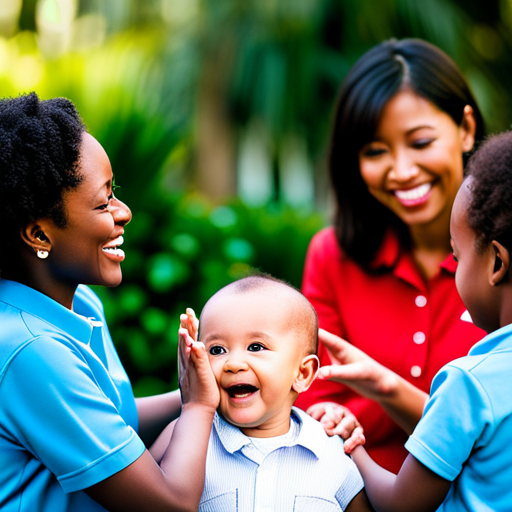
To support your baby’s healthy social development, it’s important to create a nurturing and responsive environment. Promoting emotional intelligence and fostering empathy are key factors in this process.
Emotional intelligence refers to the ability to recognize, understand, and manage one’s own emotions and the emotions of others. By promoting emotional intelligence in your baby, you’re helping them develop a strong foundation for healthy social interactions.
One way to promote emotional intelligence is by being responsive to your baby’s needs. When your baby cries or expresses distress, responding promptly and with sensitivity helps them feel understood and secure. This teaches them that their emotions matter and that they can rely on you for support.
Fostering empathy is another crucial aspect of supporting your baby’s social development. Empathy involves understanding and sharing the feelings of others. You can encourage empathy in your baby by modeling it yourself. Show compassion and understanding towards others, and your baby will learn to do the same. Additionally, providing opportunities for your baby to interact with other children and observe their emotions can also help develop their empathy skills.
Creating a nurturing and responsive environment, promoting emotional intelligence, and fostering empathy are essential for your baby’s healthy social development. By incorporating these practices into your daily interactions, you’re laying a strong foundation for their future relationships and overall well-being.
Promoting Attachment and Bonding

Promote a strong attachment and bond with your baby to foster their social skills and emotional well-being. Building a secure parent-child connection is crucial for the healthy development of your little one. Here are five ways you can nurture this special relationship:
-
Skin-to-skin contact: Holding your baby close and allowing their skin to touch yours promotes a sense of security and comfort. It helps in establishing trust and deepening the bond between you and your baby.
-
Eye contact and responsive communication: Engage in meaningful eye contact with your baby and respond to their cues promptly. This not only strengthens the parent-child connection but also aids in the development of their social skills.
-
Gentle touch and cuddling: Physical touch, such as gentle caresses and cuddling, releases oxytocin, the bonding hormone. Regular physical contact with your baby helps them feel loved and valued.
-
Positive and nurturing interactions: Create a warm and loving environment by speaking softly, singing, and playing with your baby. These positive interactions foster a sense of security and contribute to their emotional well-being.
-
Consistency and routine: Establishing a consistent routine provides predictability and stability for your baby. This sense of structure helps them feel secure and builds trust in the parent-child relationship.
Frequently Asked Questions
How Can I Encourage My Baby to Develop Early Social Behaviors?
You can encourage your baby to develop early social behaviors by engaging in activities that promote interaction, such as playdates and reading aloud. Research shows that early social development benefits your baby’s overall well-being.
What Are Some Common Milestones in Social Development That I Can Expect My Baby to Reach?
As your baby grows and develops, there are common milestones in social development that you can expect them to reach. By encouraging early behaviors, you can help them build important social skills for the future.
Are Social Skills Really Important for My Baby’s Overall Development?
Social skills are like building blocks for your baby’s overall development. They play a crucial role in shaping their social interactions, emotional well-being, and future relationships. Parental involvement is key in fostering these skills.
Can You Provide Examples of Different Types of Social Interactions That Babies Engage In?
As babies grow, they begin to engage in various types of social interactions. They learn through play, observation, and imitation. These early interactions are crucial for their development, helping them develop empathy, communication skills, and the ability to form healthy relationships.
What Are Some Techniques or Strategies for Supporting Healthy Social Development in Infants?
Want to support healthy social development in your baby? Try techniques like responsive parenting, engaging in joint activities, and providing opportunities for social interaction. These strategies can lay the foundation for strong social skills in infants.
Conclusion
So, there you have it! Baby’s social skills are crucial for their overall development.
From early social behaviors to important milestones, every interaction plays a significant role in shaping their social abilities.
By promoting attachment and bonding and providing opportunities for healthy social development, parents and caregivers can ensure that their little ones thrive in their social interactions.
Remember, building strong social skills in early childhood sets the foundation for successful relationships and interactions throughout life.


